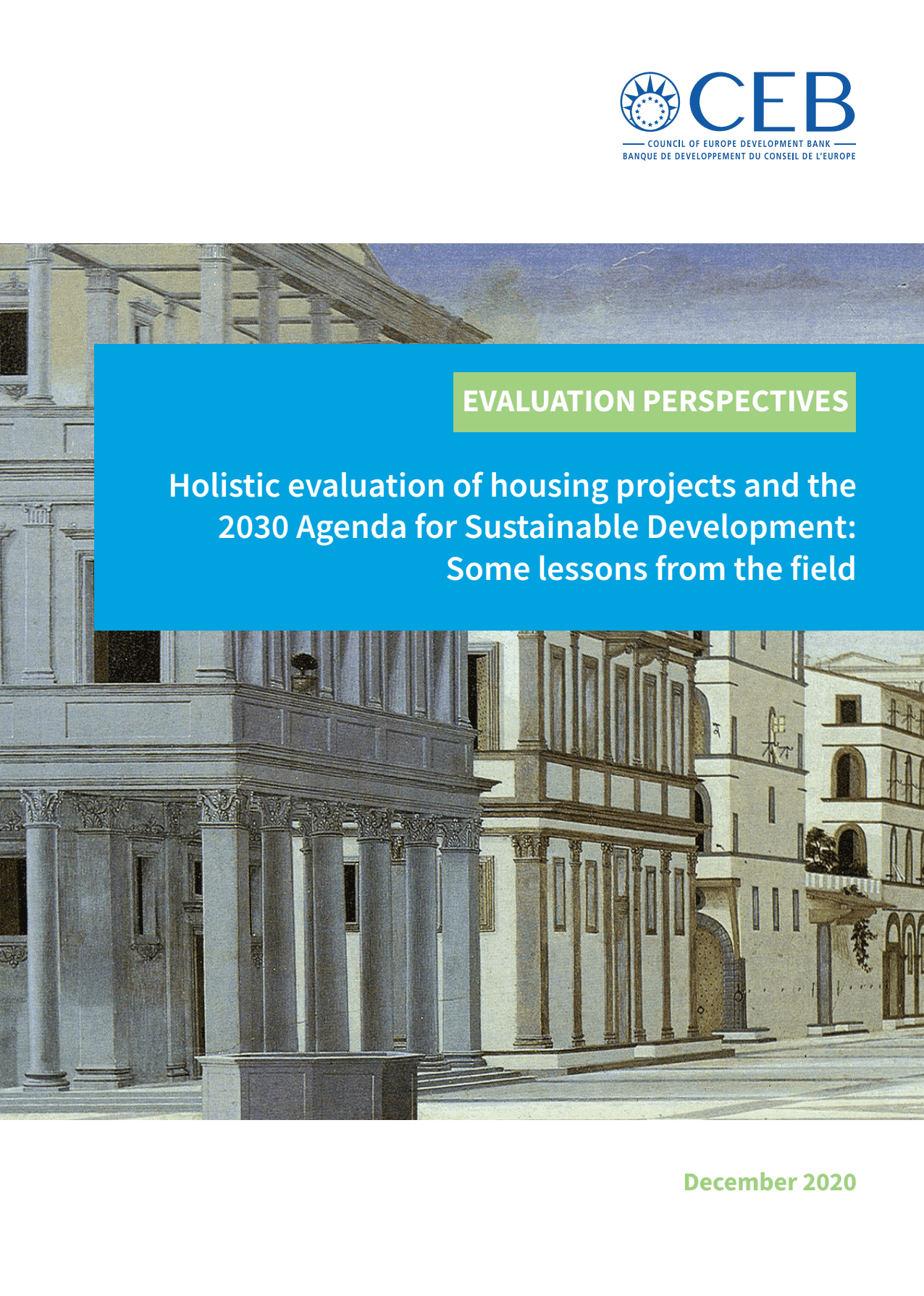AI-Generated Summary
Context and Purpose
The publication titled "Holistic evaluation of housing projects and the 2030 Agenda for Sustainable Development" is part of the Evaluation Perspectives series by the Council of Europe Development Bank (CEB). It aims to share knowledge and evidence-based insights related to social development, particularly in the realm of housing. The CEB has been dedicated to financing housing for lower-income and vulnerable groups since its inception, highlighting the critical need for sustainable housing solutions in Europe.
The Housing Challenge
Access to housing has emerged as a pressing societal issue across many CEB member countries due to factors such as a growing urban population, rising housing prices, and urban transformation trends that intensify social inequalities. The 2030 Agenda, established by the United Nations in 2015, includes Sustainable Development Goal (SDG) 11, which focuses on creating inclusive and sustainable cities. A core target of this goal is to ensure "access for all to adequate, safe and affordable housing."
Insights from Evaluations
The CEB's evaluations of social housing projects, including a comprehensive cycle completed in 2019, reveal valuable lessons for the design of future housing initiatives. Traditional evaluations have primarily focused on physical structures, assessing success through metrics like the number of dwellings constructed and cost-effectiveness. However, housing is part of a broader urban context, and investments in housing have significant effects beyond mere physical developments.
A Holistic Evaluation Framework
This publication advocates for a comprehensive, holistic evaluation of housing projects that transcends physical interventions. The evaluation approach consists of three levels: 1. First-Level Assessment: This focuses on the physical aspects of the dwellings. 2. Second-Level Results: This encompasses the direct and indirect effects of housing on beneficiaries, such as impacts on health, household finances, employment, and education. 3. Third-Level Impacts: These effects extend to the surrounding neighborhoods and the broader economic, social, and environmental fabric of the area. Such impacts may not manifest in the short term and can vary in their nature, being either positive or negative.
Understanding Complex Effects
Recognizing the complex range of effects tied to housing investments is crucial for ensuring sustainability from human, social, environmental, and institutional perspectives. Some outcomes may be predictable, while others may be unforeseen. It is important to weigh intentional impacts against unintentional ones, as the latter may significantly influence the overall effectiveness of housing projects.
Conclusion
The publication serves as a vital resource for stakeholders involved in housing development and urban planning, emphasizing the need for a nuanced understanding of how housing projects impact individuals and communities. By adopting a holistic evaluation framework, policymakers and developers can enhance the social impact of their housing initiatives, aligning with the broader goals of the 2030 Agenda for Sustainable Development.
